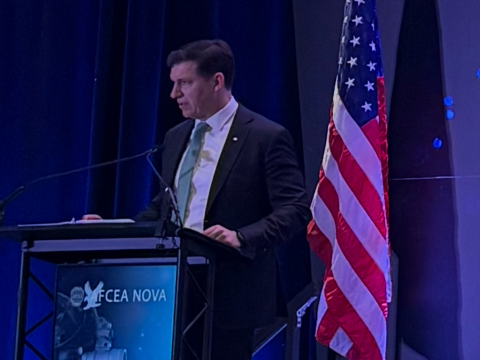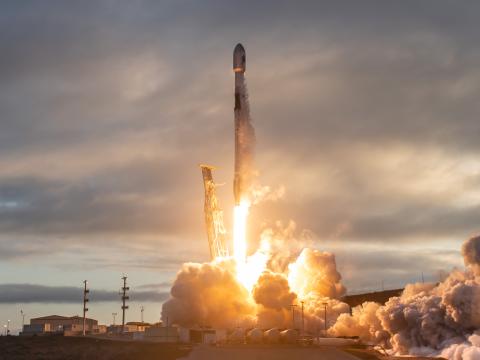Message from the Chairman: A Legacy Renewed
A message from AFCEA's new chairman of the board.
It truly is my honor to serve as chairman of the AFCEA International board of directors. I began my career 30 years ago working on electronics, avionics, sensors and communications solutions for various industrial and military applications. AFCEA was critical to me then as a source of insights about the operational needs of the women and men in our armed forces. The association helped me appreciate for the first time the intersection of politics, policy, doctrine and technology as well as its implications—sometimes helpful, sometimes not—on military and industry efforts to deliver effective communications and electronics-based capabilities to the warfighter.
In recent years, whether as the leader of Booz Allen’s Army or defense businesses or as the general manager for engineering and scientific capabilities across the firm, I have experienced how AFCEA and all that AFCEA represents and connects me to remains relevant and essential. I am very proud of my continued affiliation with AFCEA, particularly under the leadership of Lt. Gen. Robert M. Shea, USMC (Ret.). He is committed to keeping AFCEA relevant, engaged, focused and well-managed.
Communications and electronics in today’s global, highly networked world means AFCEA’s mission is more relevant than ever. This year, AFCEA celebrates its 70th anniversary, although its roots can be traced back to the 1860s with the establishment of the U.S. Army Signal Corps and subsequently the U.S. Veterans Signal Association. Since its founding, AFCEA has strived to provide what President Harry S Truman called for in a letter to the association’s founders. President Truman urged the signal community and the communications and electronics sector, such that it was in the mid-1940s, to foster “industrial preparedness, which must buttress the future security of our country.” AFCEA’s founders—Brig. Gen. David Sarnoff, USAR, Maj. Gen. Harry C. Ingles, USA, and film producer Darryl F. Zanuck—and their forebearers—Lt. Albert J. Myer, USA, Maj. Gen. George Squier, USA, and Col. William Blair, USA—knew the transformative power of communications, electronics and networks. Although they could not predict specifics—and who could?—it is safe to say they would not be surprised by how network-centric all human endeavors, business sectors and government functions have become.
That said, I believe they would be disappointed, dismayed and somewhat surprised by the nefarious acts that criminals, terrorists and certain nation-states are carrying out using the networks they helped create. Those who laid the foundation for today’s networked world, and those who built up the assemblage of wireline and wireless communication networks, with their myriad supporting elements, did so as an inherently positive act. They did it to create a smaller, better-informed world connected by technologies that enable speedy and extensive communications to do good for society at large. They built cyberspace for affirmative purposes. But as with any human endeavor, good intermixes with evil to yield unexpected and unpredictable results.
President Truman’s charge to “buttress the future security of our country” and, by extension, that of our allies around the world as issued to the founders of AFCEA, takes on a deeper meaning for us today as AFCEA’s leaders and members. Then, the communications and electronics technologies that were developed and deployed enabled greater security through the advantages they provided. They ultimately led to world-class command, control, communications, computers, intelligence, surveillance and reconnaissance (C4ISR) in all its facets and dimensions. Today, they continue to do that and more, but they also represent a risk to the very security they are intended to buttress.
AFCEA must focus on the reduction of this risk while enhancing the advantages that these technologies provide. Like the Roman god Janus with his two faces looking in opposite directions, AFCEA, its leaders, its members and its stakeholders must continue to look forward with optimism and resolve to deliver on the promise of further technological advancement in the networked world but also look with care, purpose and commitment to better secure this world.
I believe that science, technology, engineering and mathematics (STEM), like leadership, are inherently positive human pursuits, and the good they can be used to achieve far outstrips the bad others can distort them to produce. The AFCEA community is doing a great deal to “buttress the future security” of our world, with the duality that this phrase now evokes. But AFCEA can do more if we as its leaders and members remain focused on its mission, as Gen. Shea and his team continue the management reforms so essential to preserving AFCEA’s future.




Comments